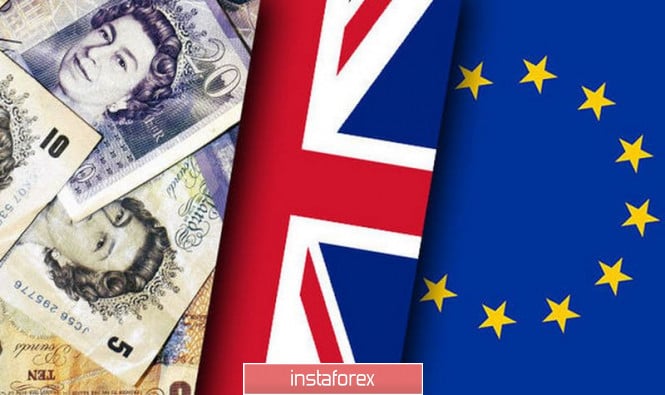
As a result of early elections in the UK on December 12, the Conservative Party, led by Boris Johnson, has won the most parliamentary seats since 1987, that is, from the time of Margaret Thatcher's premiership.
The Tories received 364 seats in the House of Commons, which consists of 650 people
At the same time, the Labour Party suffered the most crushing defeat since 1935. It got only 203 places.
The latter fact was one of the biggest surprises of the last election.
According to Andrew Neal, a BBC columnist, this is the third largest political shift in the United Kingdom after the victory of the Labour Party led by Clement Attlee (in 1945) and Victoria Tory under M. Thatcher (in 1979).
What is the secret of Tory success?
Apparently, Johnson's risky bet worked.
Recall, at the end of October, he said that an extraordinary universal vote is Great Britain's only way out from the impasse associated with Brexit.
The campaign was dedicated to Brexit.
The Tories promised voters that they would easily lead the country out of the European Union.
The Labour Party argued that Britain should maintain close ties with the EU.
Between these contrasting "hard" and "soft" options for the United Kingdom to leave the EU, voters seem to have preferred the former because they are just tired of the Brexit theme and want to get it over with. Under this scenario, the election campaign of the Laborites under the slogan of continuing negotiations on Brexit with the EU and holding another referendum was a failure.
What will happen next?
Throughout 2019, both under Theresa May and Johnson, the Conservatives did not have a majority in Parliament to ratify the "divorce" agreement.
Now, Johnson has the necessary majority, so Brexit, it seems, still take place.
However, the agreement on the country's withdrawal from the EU is only the beginning: then London will need to quickly agree on a trade deal with Brussels and save the slowing economy.
Another result of the elections was the confident victory of the Scottish Nationalist Party (SNP) in Scotland. SNP led by leader Nicola Sturgeon will seek another Scottish independence referendum, creating a new headache for London.
As noted by Robert Shrimsley of the Financial Times, despite all the successes, Johnson should prepare for new challenges - trade negotiations with the EU and the Scottish independence campaign.
What to expect from the pound?
During the election campaign, the British currency grew when the chances for the Conservatives to win increased, and fell at any hint that Labour, led by Jeremy Corbyn, could prevail.
According to some experts, the position of market participants was, albeit logical, but not entirely clear.
The election program of the Labour Party implied the implementation of many scenarios that aroused concern among investors. For example, Corbyn advocated the nationalization of public utilities. At the same time, he would hardly have been able to translate these plans into practice, since not a single poll even indicated that Labour could come to power without the support of centrist pro-European parties. This ruling coalition could have implemented a very soft Brexit or canceled the country's exit from the EU, that is, it would actually have done what most investors are likely to consider to be good for the British economy.
The divorce agreement promoted by Johnson, which he had previously concluded with Brussels, implies the possibility of raising more impressive trade barriers between the EU and the United Kingdom.
At the election results, indicating the Conservative Party's unconditional victory, the pound rose against the US dollar to its highest value since May 2018, and against the euro to the highest level since the Brexit referendum in 2016.
"There are not many reasons for the further growth of sterling," State Street Global Markets strategists said, who see a fair value of GBP at $1.3340 against the US dollar and €0.8670 against the euro.
"Over time, these fair values can move towards 1.36 and 0.84, respectively, although this seems unlikely, given that we remain in a post-election environment where a more hard version of Brexit is possible," they said.
"Sterling has less room for growth against the euro than the dollar after the Conservative Party wins the general election in the UK," Societe Generale said.
"Negotiations on trade deals that will begin if the British Parliament accepts an agreement by Conservatives to leave the EU will create a lot of uncertainty. In addition, the problems of the economy will not disappear. The euro will be less prone to Brexit concerns due to reduced trade, but this will be offset by the economic weakness of the eurozone," experts said. They expect the EUR/GBP to trade between 0.82 and 0.88 in 2020.
According to analysts at Nordea Bank, the pound may face a risk of decline after the British Brexit deal is ratified and the UK officially leaves the EU on January 31.
"The fact is that after that more complicated trade negotiations with the EU will begin," they said.
According to the bank's forecast, the EUR/GBP pair will trade at 0.835 in a month, 0.85 in three months and 0.87 in six months.
The material has been provided by InstaForex Company - www.instaforex.com